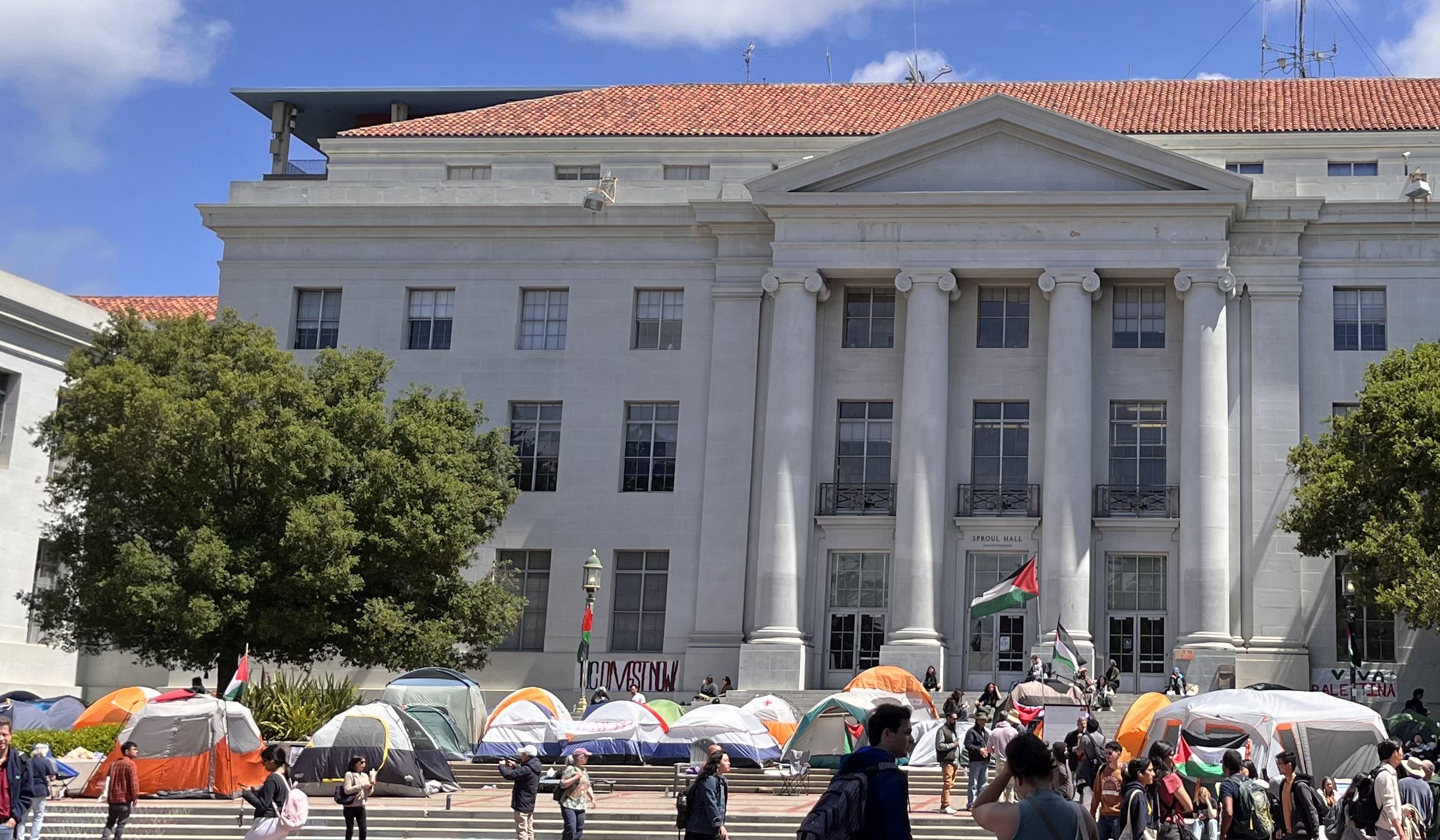
By David M. Greenwald
Executive Editor
It was 2011 when UC Davis, in response to the Occupy Protests, made a grievous error. The university decided to attempt to clear the quad. What happened next stained the reputation of the university and garnered national attention to the Davis Community—university police were caught on camera dousing student protesters with large volumes of pepper spray.
After a number of escalating incidents in the years leading up to that mistake, the university realized that the worst thing they can do is attempt to intervene. So later, when the students blocked an on-campus bank, the university did not use force to remove the protesters—the bank left, the students received citations and court appearance summons in the mail.
A few years later, when Chancellor Katehi found herself in the crossfire and ultimately was forced to step down, students occupied the outside of her offices for weeks—camping out but never cleared.
That kind of response allows the students to have their voices heard, and eventually the protestors will get tired of the action and move on.
This is a lesson that we should have learned during the Civil Rights Movement. Protests like the one at Birmingham that drew national attention when officers beat, sent dogs  and used fire hoses on protesters, were a spectacular success. The same was true on the Edmond Pettus bridge into Selma.
and used fire hoses on protesters, were a spectacular success. The same was true on the Edmond Pettus bridge into Selma.
On the other hand, the protests in Albany, Georgia, were widely considered a failure because the authorities didn’t overreact.
You can argue that not all protests are made alike. The morality of a protest is indeed dependent on its content. But just as importantly, while morality can often be subjective and in the eye of the beholder, a fundamental principle for democratic governance is the right to dissent. Without dissent, free speech would be empty.
What makes the Palestinian issue so difficult is not only has the Middle East long been a point of contention, both sides have legitimate points.
I was reading Haaretz last week and a column laid out exactly how I feel about this situation. On October 7, the situation was wholly tragic—and forgotten by many is the horrific attack, the killings, the kidnappings and everything delivered at the hands of Hamas.
But the Netanyahu government took a situation where the world felt legitimate sympathy for Israel and squandered the moral high ground.
Haaretz notes, “The Netanyahu government failed to exploit its battlefield victories to reach an agreement on the release of all the hostages and to advance an alternative political order in Gaza. Instead, it decided to knowingly inflict on Gaza an unnecessary humanitarian disaster – and in so doing, inflicted on Israel an unnecessary political disaster. One by one, our allies have become horrified by what is happening in Gaza, and one by one, they are calling for an immediate cease-fire, and even for a weapons embargo on Israel. Moderate Arab countries whose interests dovetail with ours, and who are afraid of Iran, Hezbollah and Hamas, have found it difficult to cooperate with us while we devastate Gaza.”
It continues: “Even during the worst moments of October 7, Hamas was nowhere near vanquishing Israel. But the ruinous policy of the Netanyahu government following October 7 has placed Israel in existential danger.”
And while the rise of antisemitism is a huge concern to American Jews, the devastation in Gaza doesn’t look like a policy likely to do anything other than split Israel from her allies while inflaming the passions of many of her detractors across the world.
Universities have an important job to do here.
As Executive Director Anthony D. Romero and National Legal Director David Cole laid out in an open letter to campuses, “The First Amendment compels public universities and colleges to respect free speech rights. And while the Constitution does not apply directly to private institutions, academic freedom and free inquiry require that similar principles guide private universities.”
The letter attempts to be even handed, warning that “university administrators must not single out particular viewpoints — however offensive they may be to some members of the community — for censorship, discipline, or disproportionate punishment.”
Moreover, they argue “both public and private universities are bound by civil rights laws that guarantee all students equal access to education, including Title VI of the Civil Rights Act. This means that schools can, and indeed must, protect students from discriminatory harassment on the basis of race or national origin, which has been interpreted to include discrimination on the basis of ‘shared ancestry or ethnic characteristics,’ or ‘citizenship or residency in a country with a dominant religion or distinct religious identity.’ ”
The ACLU condemned both anti-Semitism and anti-Palestinian speech, arguing that speech “targeted at individuals because of their ethnicity or national origin constitutes invidious discrimination, and cannot be tolerated.”
At the same time, “Speech that is not targeted at an individual or individuals because of their ethnicity or national origin but merely expresses impassioned views about Israel or Palestine is not discrimination and should be protected.”
At the same time, the universities have to protect the right to speech.
At the University of Texas yesterday, local news reported, “Another tense scene broke out at the University of Texas at Austin on Monday as law enforcement officers dragged dozens of pro-Palestinian protesters from an encampment and then used pepper spray and flash bang explosives to dispel a crowd of demonstrators.
“At least 40 people were arrested as of 3:30 p.m., and several others were given medical attention because of the sweltering heat.”
These types of responses aren’t likely to lead to anything other than inflaming what is already a difficult situation.

